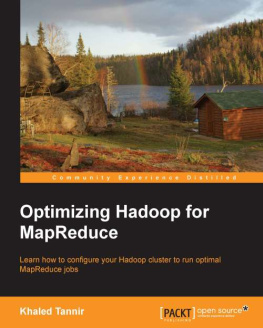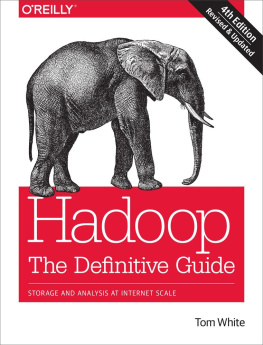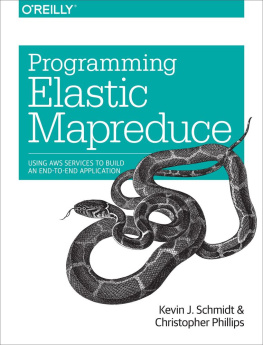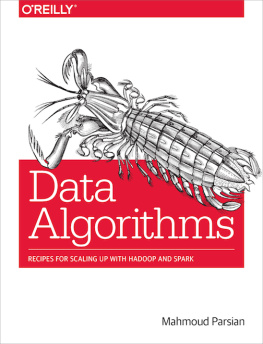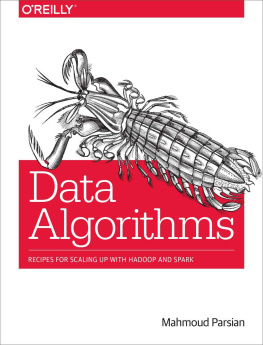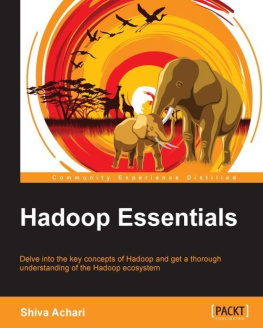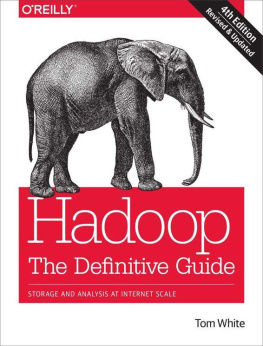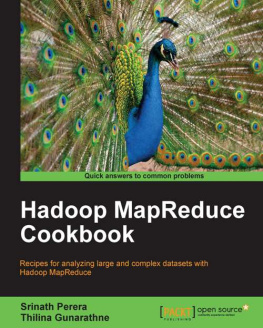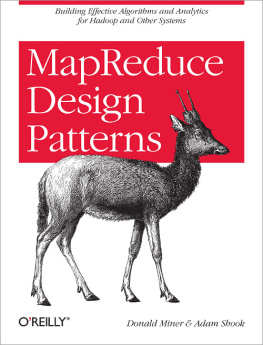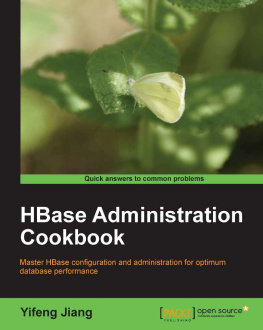Khaled Tannir - Optimizing Hadoop for MapReduce
Here you can read online Khaled Tannir - Optimizing Hadoop for MapReduce full text of the book (entire story) in english for free. Download pdf and epub, get meaning, cover and reviews about this ebook. year: 2014, publisher: Packt Publishing, genre: Computer. Description of the work, (preface) as well as reviews are available. Best literature library LitArk.com created for fans of good reading and offers a wide selection of genres:
Romance novel
Science fiction
Adventure
Detective
Science
History
Home and family
Prose
Art
Politics
Computer
Non-fiction
Religion
Business
Children
Humor
Choose a favorite category and find really read worthwhile books. Enjoy immersion in the world of imagination, feel the emotions of the characters or learn something new for yourself, make an fascinating discovery.
- Book:Optimizing Hadoop for MapReduce
- Author:
- Publisher:Packt Publishing
- Genre:
- Year:2014
- Rating:5 / 5
- Favourites:Add to favourites
- Your mark:
Optimizing Hadoop for MapReduce: summary, description and annotation
We offer to read an annotation, description, summary or preface (depends on what the author of the book "Optimizing Hadoop for MapReduce" wrote himself). If you haven't found the necessary information about the book — write in the comments, we will try to find it.
Learn how to configure your Hadoop cluster to run optimal MapReduce jobs
Overview
- Optimize your MapReduce job performance
- Identify your Hadoop clusters weaknesses
- Tune your MapReduce configuration
In Detail
MapReduce is the distribution system that the Hadoop MapReduce engine uses to distribute work around a cluster by working parallel on smaller data sets. It is useful in a wide range of applications, including distributed pattern-based searching, distributed sorting, web link-graph reversal, term-vector per host, web access log stats, inverted index construction, document clustering, machine learning, and statistical machine translation.
This book introduces you to advanced MapReduce concepts and teaches you everything from identifying the factors that affect MapReduce job performance to tuning the MapReduce configuration. Based on real-world experience, this book will help you to fully utilize your clusters node resources to run MapReduce jobs optimally.
This book details the Hadoop MapReduce job performance optimization process. Through a number of clear and practical steps, it will help you to fully utilize your clusters node resources.
Starting with how MapReduce works and the factors that affect MapReduce performance, you will be given an overview of Hadoop metrics and several performance monitoring tools. Further on, you will explore performance counters that help you identify resource bottlenecks, check cluster health, and size your Hadoop cluster. You will also learn about optimizing map and reduce tasks by using Combiners and compression.
The book ends with best practices and recommendations on how to use your Hadoop cluster optimally.
What you will learn from this book
- Learn about the factors that affect MapReduce performance
- Utilize the Hadoop MapReduce performance counters to identify resource bottlenecks
- Size your Hadoop clusters nodes
- Set the number of mappers and reducers correctly
- Optimize mapper and reducer task throughput and code size using compression and Combiners
- Understand the various tuning properties and best practices to optimize clusters
Approach
This book is an example-based tutorial that deals with optimizing MapReduce job performance.
Who this book is written for
If you are a Hadoop administrator, developer, MapReduce user, or beginner, this book is the best choice available if you wish to optimize your clusters and applications. Having prior knowledge of creating MapReduce applications is not necessary, but will help you better understand the concepts and snippets of MapReduce class template code.
Khaled Tannir: author's other books
Who wrote Optimizing Hadoop for MapReduce? Find out the surname, the name of the author of the book and a list of all author's works by series.

